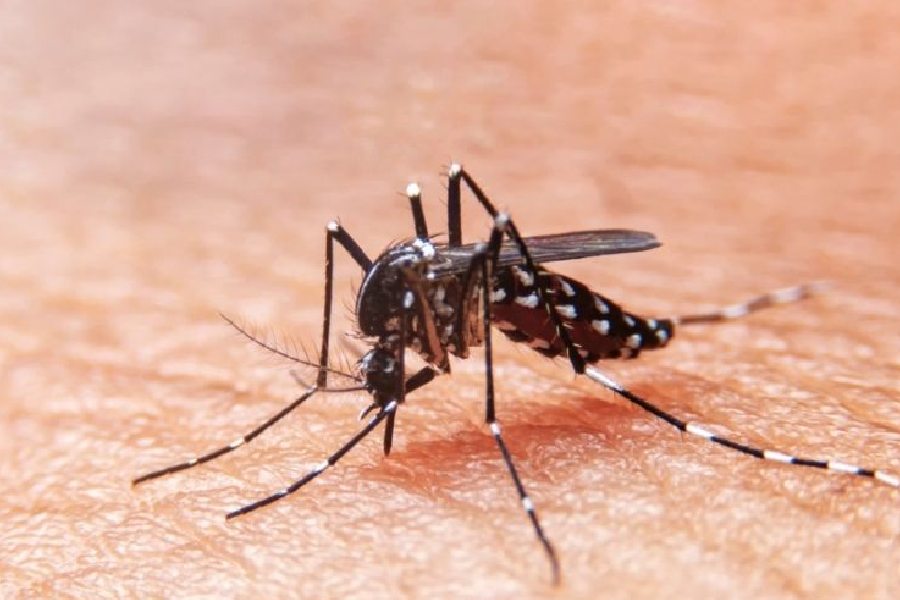The drizzle over the weekend will create many potential mosquito-breeding sites, Kolkata Municipal Corporation (KMC) officials have warned.
The officials urged people to throw away water that has accumulated in any container in their house or neighbourhood.
“If the city does not receive heavy rainfall this week, it will create more favourable conditions for the breeding of mosquitoes. Heavy rain washes away mosquito eggs,” said an official.
A KMC official said about 350 people have been infected with the dengue virus, which is transmitted by the Aedes mosquito, in the city so far this year. The number of infections was about 200 till the last week of July.
A few deaths have been reported in the city but the KMC has not released any figure on the number of deaths from the disease.
Metro has been reporting that teacups, thermocol containers, discarded shells of green coconut and earthen pots are lying among accumulated waste, uncleaned for weeks, in many parts of the city. Entomologists say accumulated waste often turns into mosquito-breeding sites, especially during the monsoon.
Vacant plots, public spaces not cleaned regularly and green verges are among the places where accumulated waste has been spotted.
“Now that it has rained over the weekend, our vector-control workers will focus on identifying and destroying potential mosquito-breeding grounds. People should drain out water that has accumulated in containers at home or in their neighbourhods,” said an official.
During a recent visit to Kolkata, a doctor who conducted field trials of oral rehydration therapy at the community-level stressed the need to involve the community to combat public health scare.
Richard Cash, a senior lecturer of global health at the Harvard TH Chan School of Public Health, said the authorities should be “honest and straightforward” to convey the reality of any public health problem to the community to involve it in the fight.
“You need to have a strong community-based programme to stop the breeding of mosquitoes. This is important in public health,” he said.
One KMC official said vector-control workers of the civic body have been trained in all the basics of dengue fight.
“If they spot mosquito larvae in a water-filled container, they will throw away the water. The larvae will not survive in the absence of water. If the workers cannot access the container, they will spray larvicide,” the official said.
“It takes a week or so since an Aedes mosquito lays eggs for adult mosquitoes to emerge. So it is advisable to drain out stagnant water at least once a week.”
